Van Gogh Foundation celebrates ten years with a shape-shifting drone display and The Starry Night
The Van Gogh Foundation presents ‘Van Gogh and the Stars’, anchored by La Nuit Etoilée, which explores representations of the night sky, and the 19th-century fascination with the cosmos
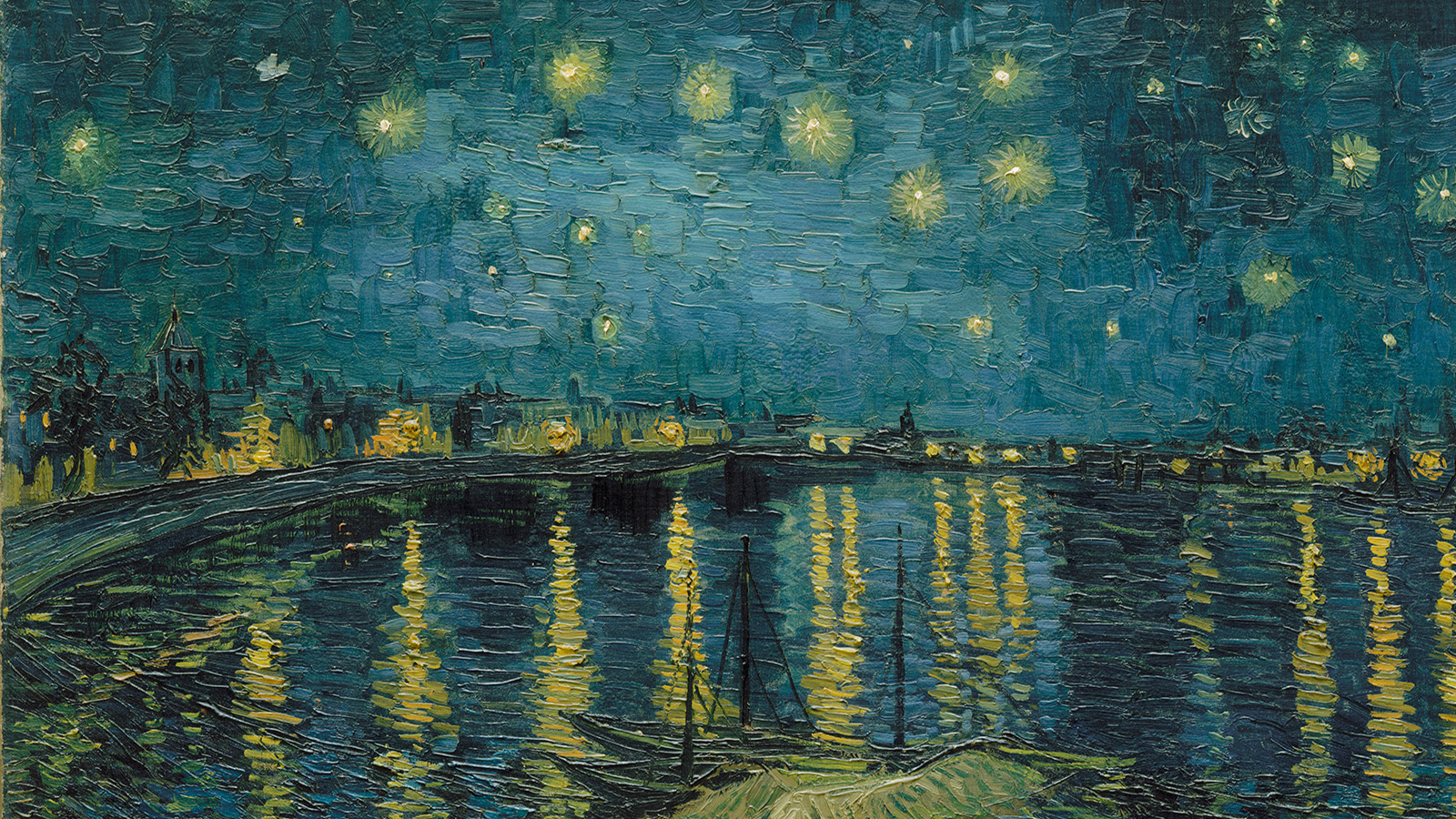
On the last day in May, a constellation of 600 illuminated drones opened the 2024 season for LUMA and the Vincent Van Gogh Foundation in Arles. Accompanied by Joep Beving's melancholy piano music and the croaking of local frogs, the drones swooped and swirled like a flock of birds in the night sky, shape-shifting, disappearing and reappearing, changing colour, their glow reflected in the stainless steel bricks of Frank Gehry's tower. Specially conceived for the occasion by the Amsterdam-based artists Drift, the performance was an homage to fellow Dutchman Van Gogh and his La Nuit Etoilée (Starry Night over the Rhone). Painted in Arles in 1888, the masterpiece is now back in the city for the first time since its creation.
Discover 'Van Gogh and the Stars'
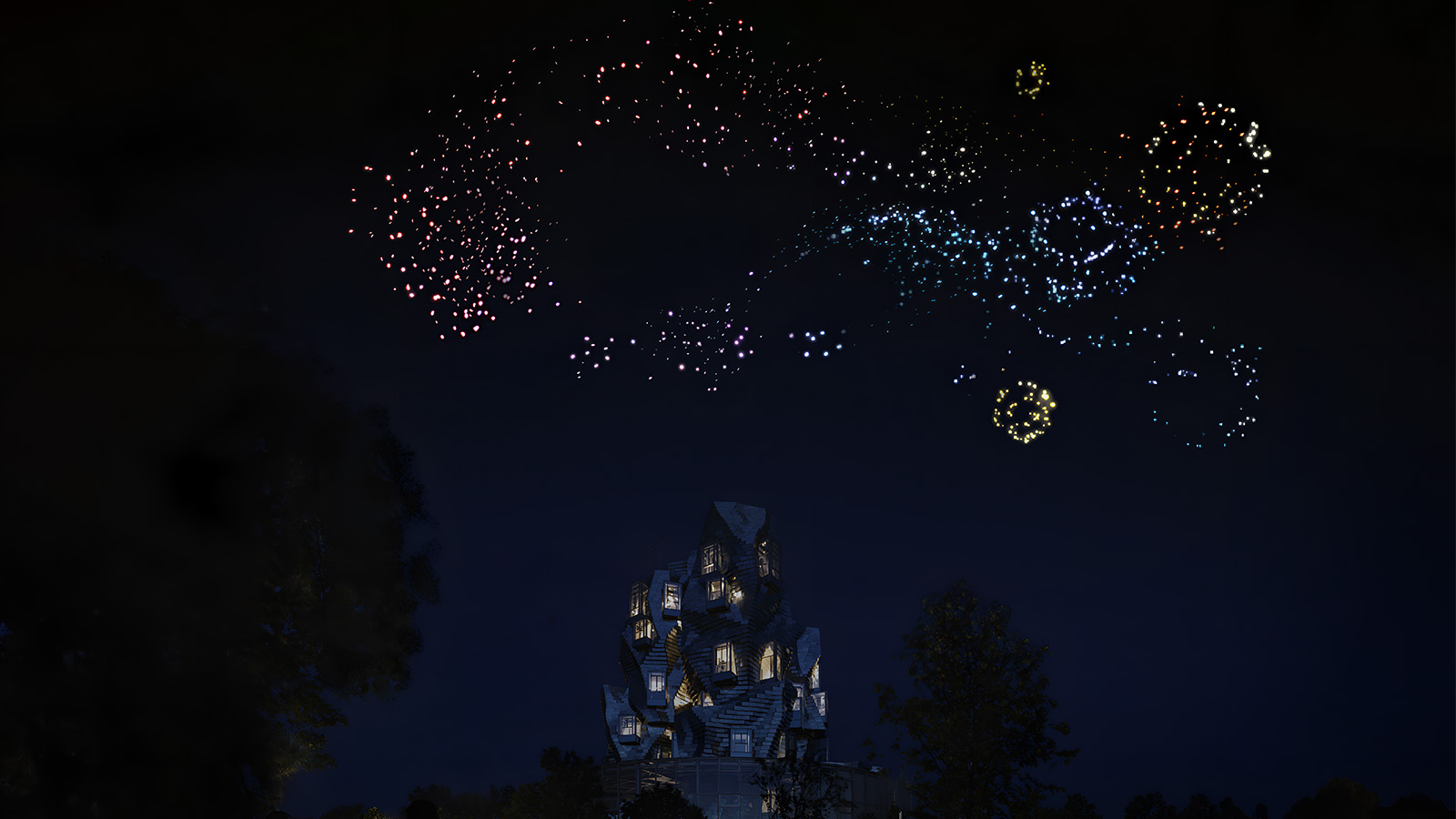
Drift, Luma Arles drones
Van Gogh lived in Arles for 15 months, during which he was mostly ignored or treated like a madman. But he was marvellously prolific, and his influence profoundly changed this place, along with art history itself. When Swiss art patron Maja Hoffmann started putting together her ambitious cultural plans for Arles, and created the LUMA Foundation 20 years ago, her father insisted she not forget Van Gogh's legacy. In 2014, she broke ground for Gehry's LUMA tower (whose architecture was inspired by La Nuit Etoilée), at the same time the Vincent Van Gogh Arles Foundation opened its doors nearby, with her father's support. (She currently presides over both.)
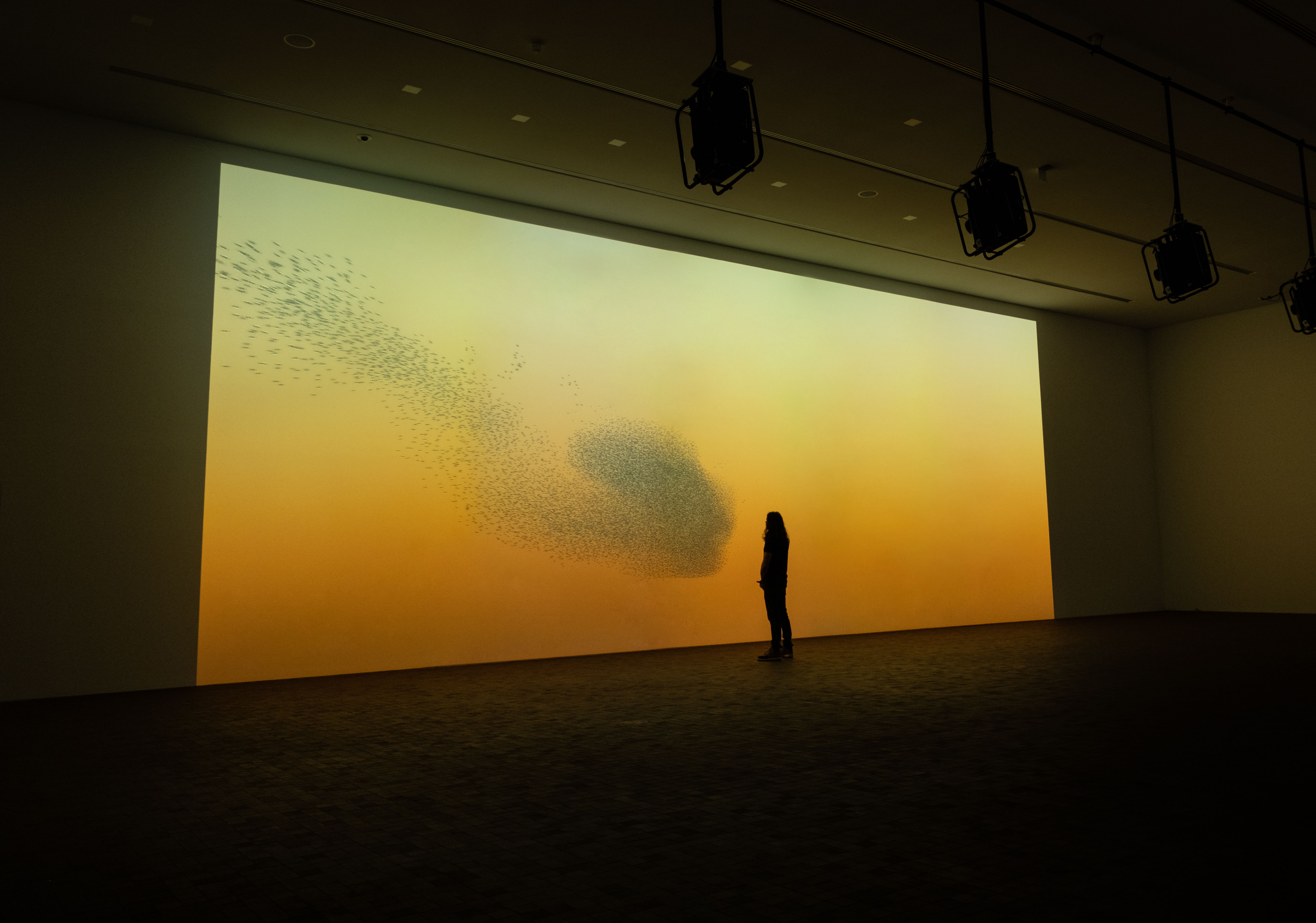
Drift, Luma Arles 2024, Coded Nature
For its tenth anniversary, the Van Gogh Foundation managed to borrow La Nuit Etoilée from the Musée d'Orsay until the end of the summer – no easy feat. The painting anchors an excellent show, 'Van Gogh and the Stars', which explores representations of the night sky, the 19th-century fascination with the cosmos, and the arrival of artificial light.
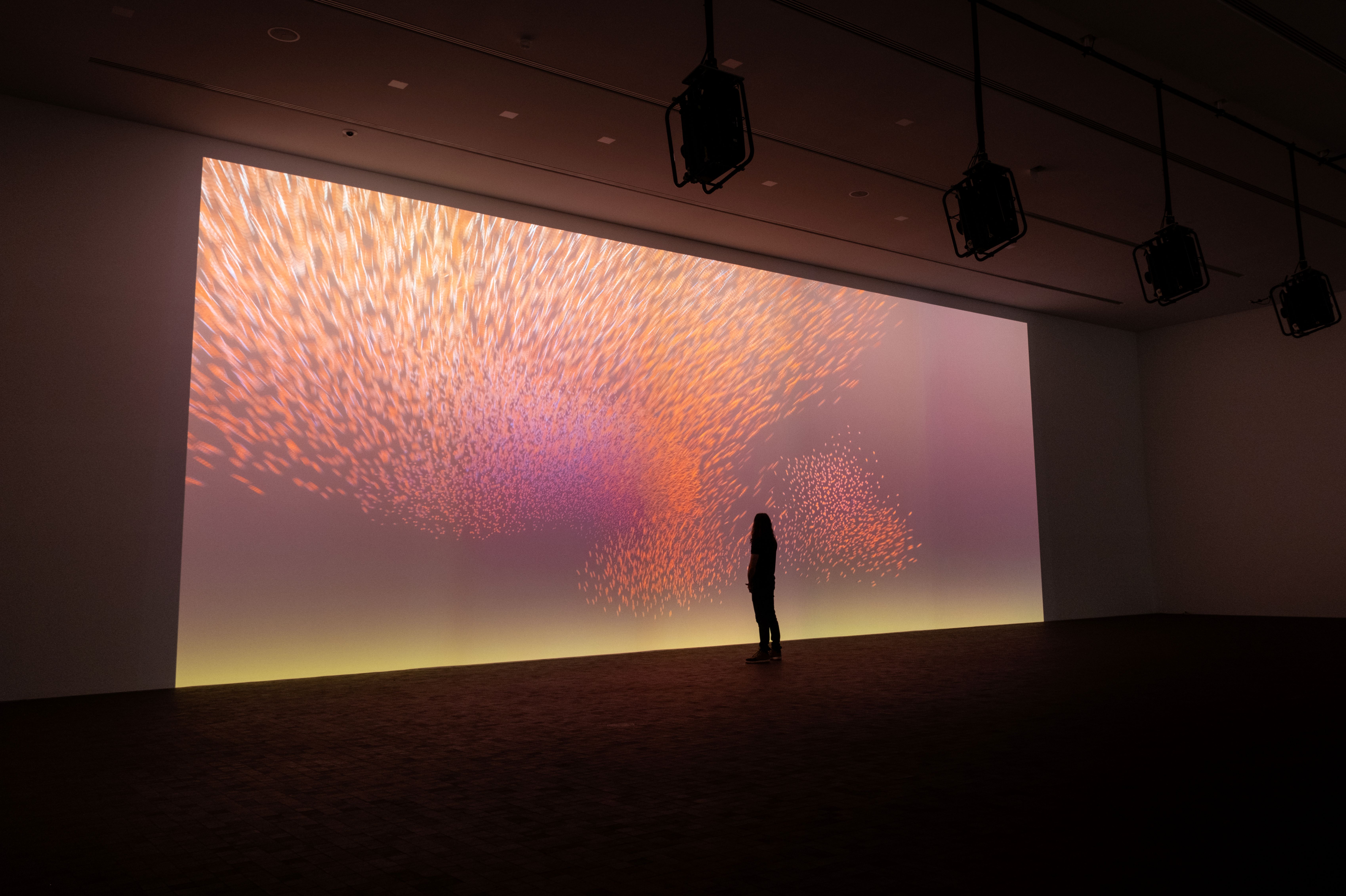
Drift, Luma Arles 2024, Coded Nature
Beyond Van Gogh's masterpiece, the exhibition's co-curators have brought together important works by more than 70 artists from 1861 to today. Some, such as Provençal painter Adolphe Monticelli, inspired Van Gogh, while others took inspiration from him. Among the many highlights are a Spatial Concept by Lucio Fontana, with holes poked into the canvas for stars, a colourful cartography of the sky by Augusto Giacometti in a telescope-shaped frame, Helen Frankenthaler's immense night sky made liquid through her ‘soak and stain’ technique, and Alicja Kwade's mobile with heavy rocks.
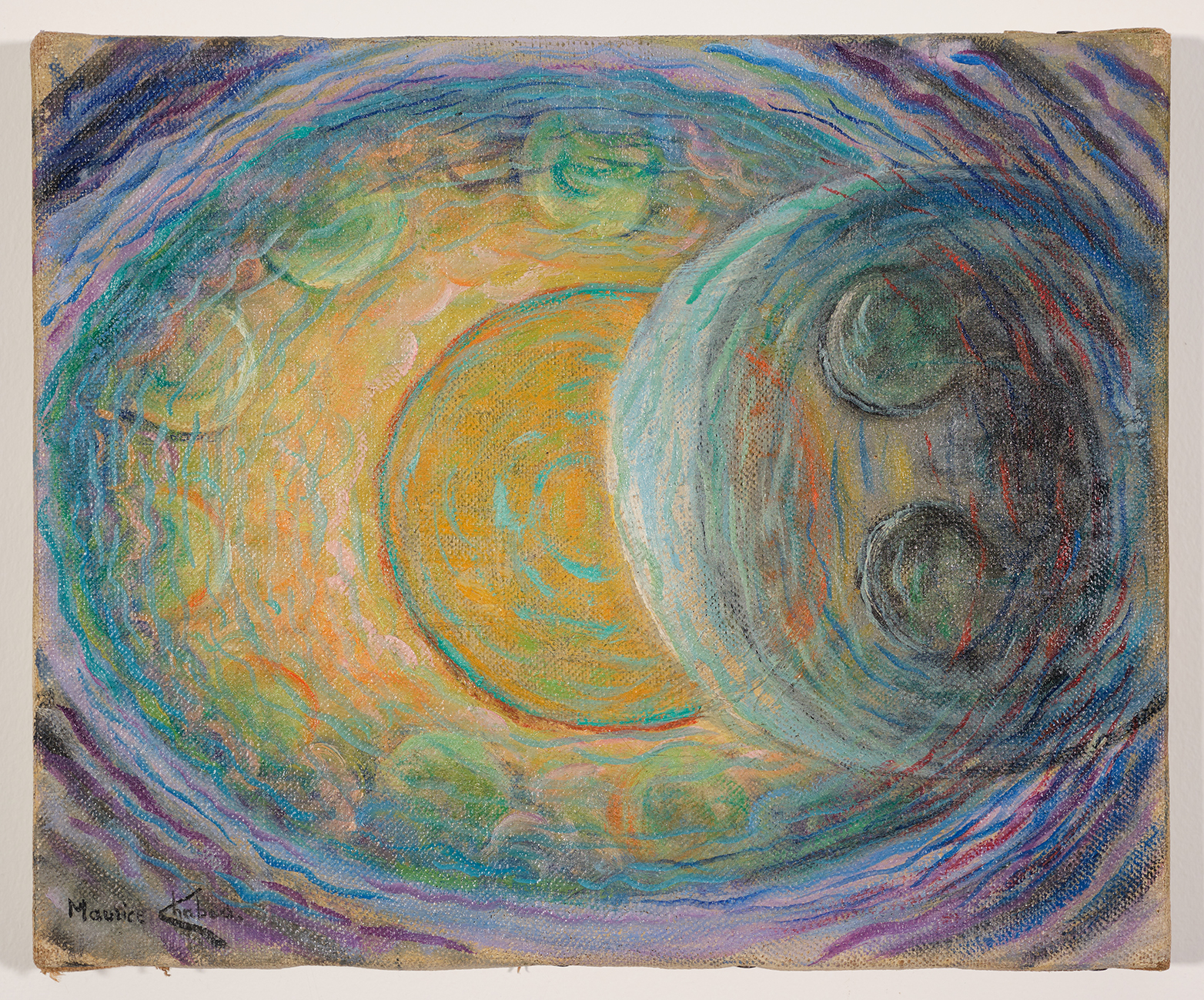
Maurice Chabas, L’Éclipse ou les Neuf sphères (The Eclipse, or the Nine Spheres), unknown date. Oil on canvas, 30 × 34,5 cm.
The exhibition ends with a new work, Nebula Watcher, by French artist Jean-Marie Appriou: a bronze sculpture of Van Gogh walking in classical contrapposto, his plaster head encased in a glass globe like an astronaut's helmet. Appriou said, 'Growing up, when others had posters of Mick Jagger on their bedroom wall, I had a poster of Van Gogh.'
Nearby, the LUMA Foundation launches its 2024 programme in two phases (the second one starting 29 June). The newly opened first phase comprises an interactive exhibition by Drift, a video installation by the American artist Diana Thater, and a four-decade survey of work by Thai artist Rirkrit Tiravanija (which includes a wonderful touch: a man making Turkish coffee).
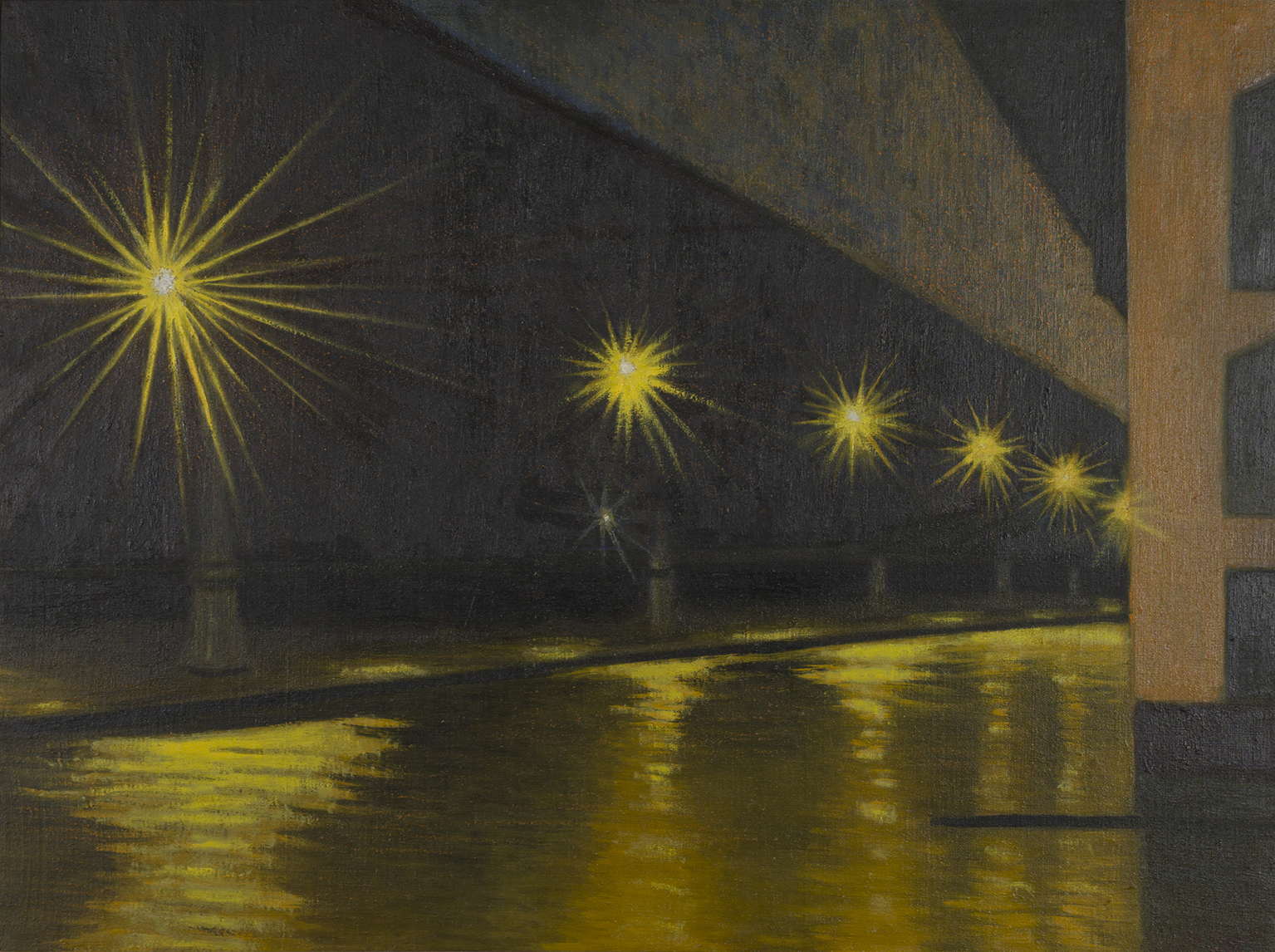
Léon Spilliaert, Quai d'Ostende sous la pluie (Ostend quay in the rain), 1924. Oil on canvas, 75 × 100 cm.
Like Van Gogh's La Nuit Etoilée – in which the light from gas streetlamps seems to come from the stars – a number of these artworks also juxtapose nature and modern technology. Thater's poignant Practical Effects imagines a post-apocalyptic world where the last being on Earth, a robot, cares for topiary animals in a garden. Ralph Nauta and Lonneke Gordijn, the couple behind Drift, merge science fiction (his obsession) and natural processes (hers). After researching the flight behaviour of starlings, the duo created two interactive artworks that use algorithms to mimic swarming. In one, Murmuring Minds, a field of blocks slides across the floor in reaction to a person's movements, an unsettling experience that makes the viewer alternately hunter and hunted.
Wallpaper* Newsletter
Receive our daily digest of inspiration, escapism and design stories from around the world direct to your inbox.
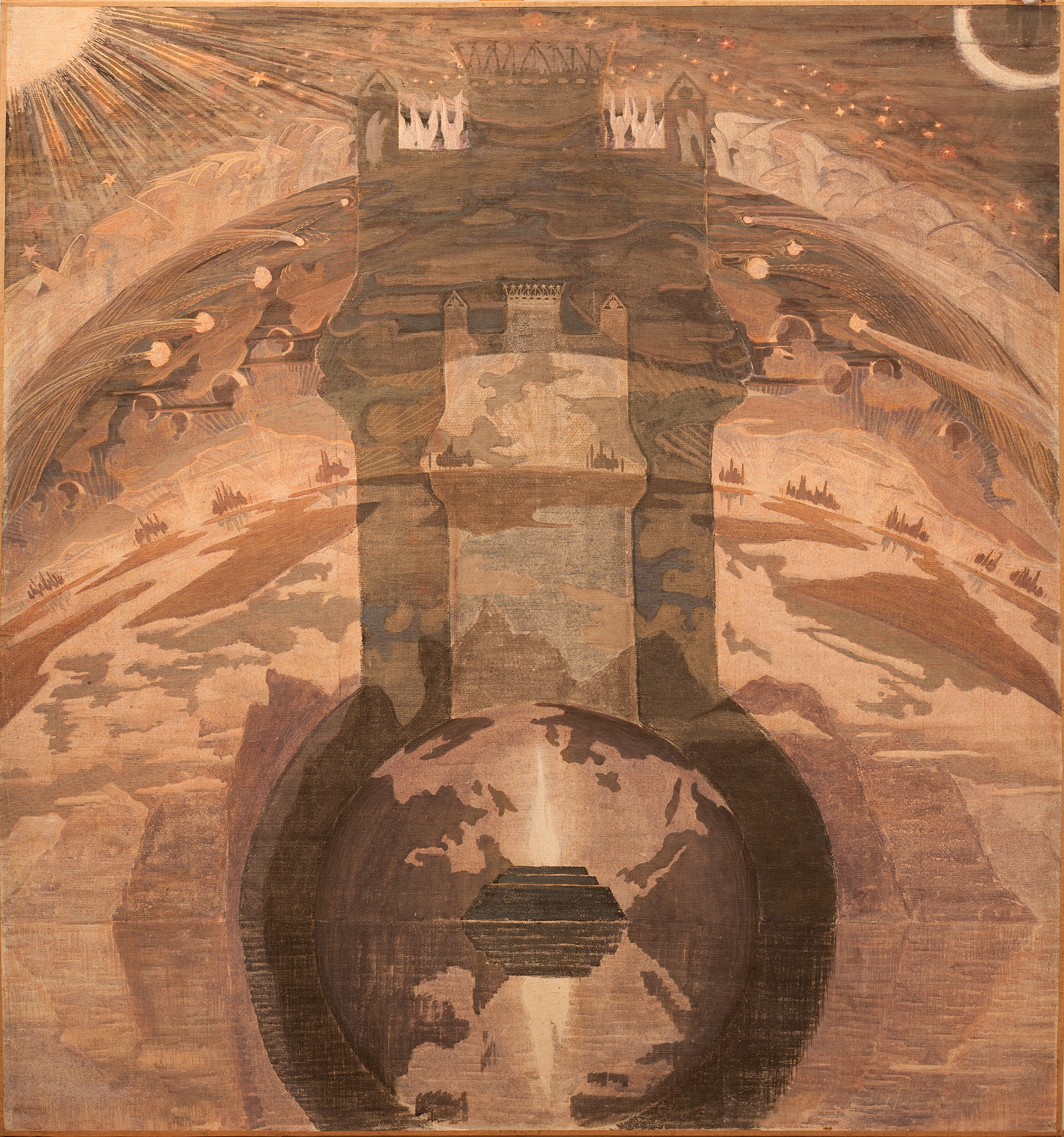
Mikalojus Konstantinas Čiurlionis, Rex, 1909. Tempera on canvas, 147,1 × 133,7 cm
A few hours before Drift's one-time-only drone performance, called Everlasting Sky, the skies over Arles were an unmistakable Provençal blue, and the night promised to be starry. 'This place is very special,' said Nauta. 'When the sun goes down, the light reflects on the town in the most magical way. You see it, and you get goosebumps.'
Vincent Van Gogh Arles Foundation’s 'Van Gogh and the Stars' runs until 8 September 2024 (though the loan of ‘La Nuit Etoilée’ ends 25 August) fondation-vincentvangogh-arles.org
LUMA's second phase of openings starts 29 June 2024, and will include Judy Chicago (also currently ‘Revelations’ in London), Gustav Metzger, William Kentridge, Erika Verzutti, Theaster Gates, and Lee Friedlander photographs selected by filmmaker Joel Coen.
-
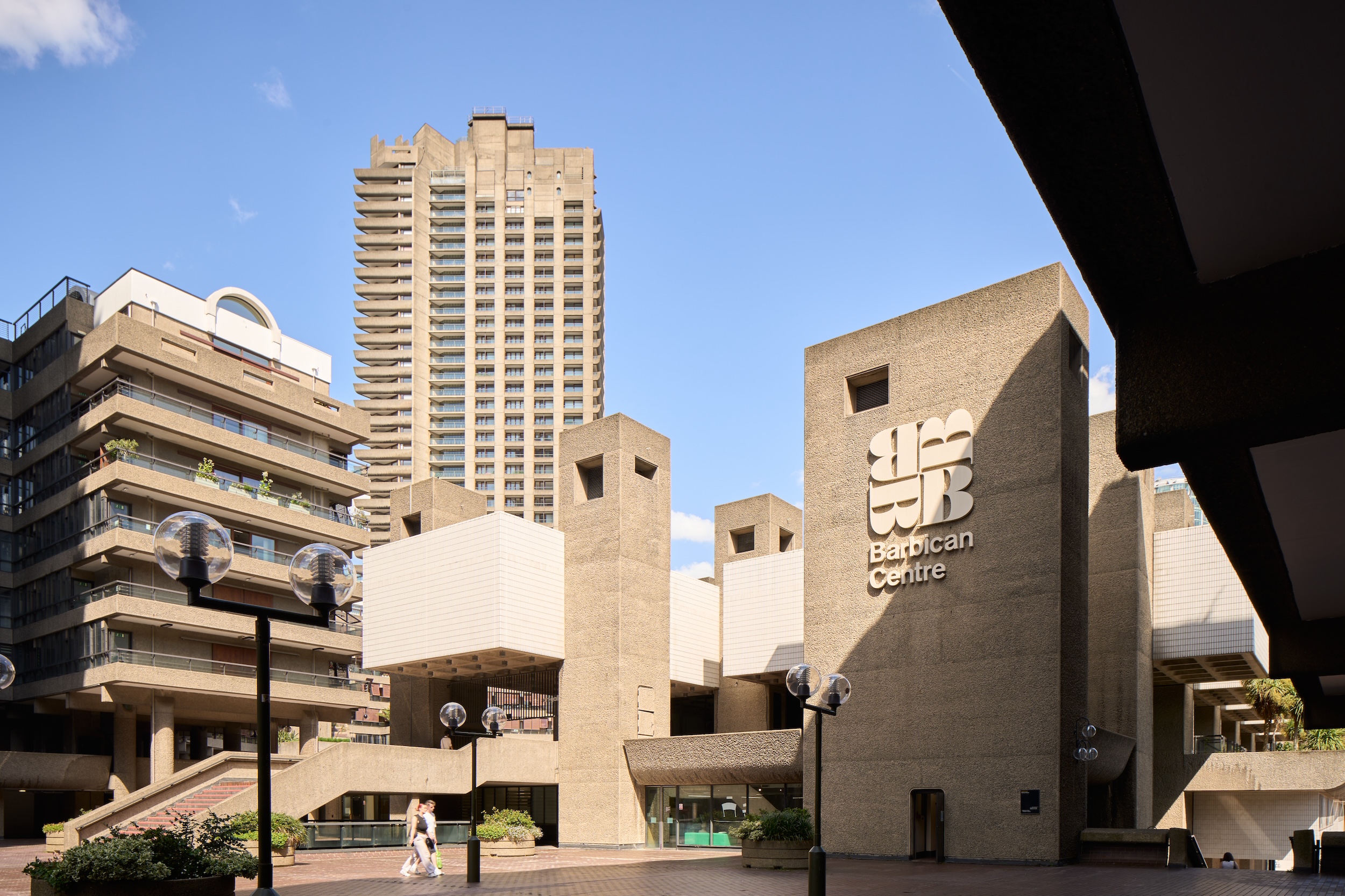 Warp Records announces its first event in over a decade at the Barbican
Warp Records announces its first event in over a decade at the Barbican‘A Warp Happening,' landing 14 June, is guaranteed to be an epic day out
By Tianna Williams
-
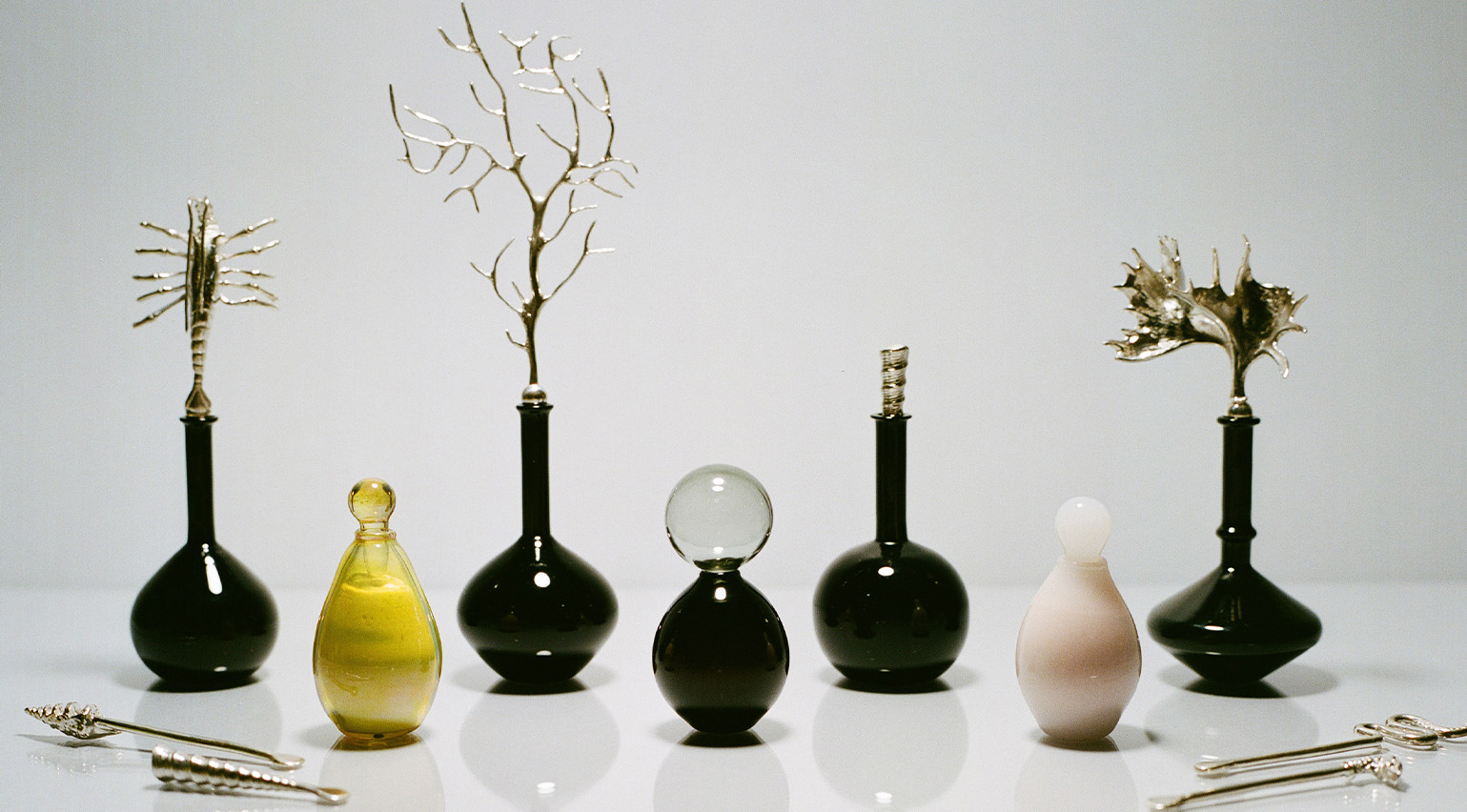 Cure your ‘beauty burnout’ with Kindred Black’s artisanal glassware
Cure your ‘beauty burnout’ with Kindred Black’s artisanal glasswareDoes a cure for ‘beauty burnout’ lie in bespoke design? The founders of Kindred Black think so. Here, they talk Wallpaper* through the brand’s latest made-to-order venture
By India Birgitta Jarvis
-
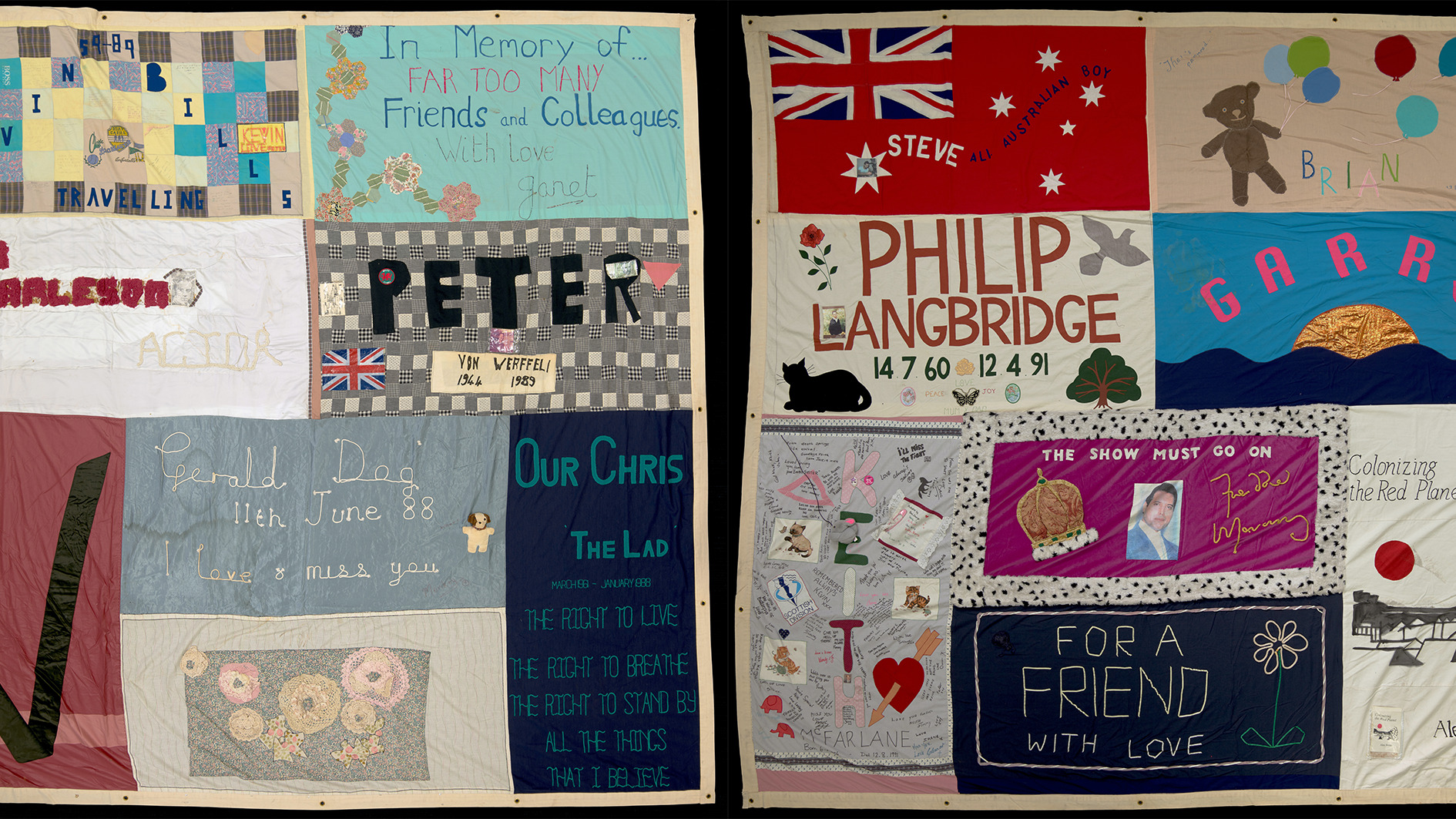 The UK AIDS Memorial Quilt will be shown at Tate Modern
The UK AIDS Memorial Quilt will be shown at Tate ModernThe 42-panel quilt, which commemorates those affected by HIV and AIDS, will be displayed in Tate Modern’s Turbine Hall in June 2025
By Anna Solomon
-
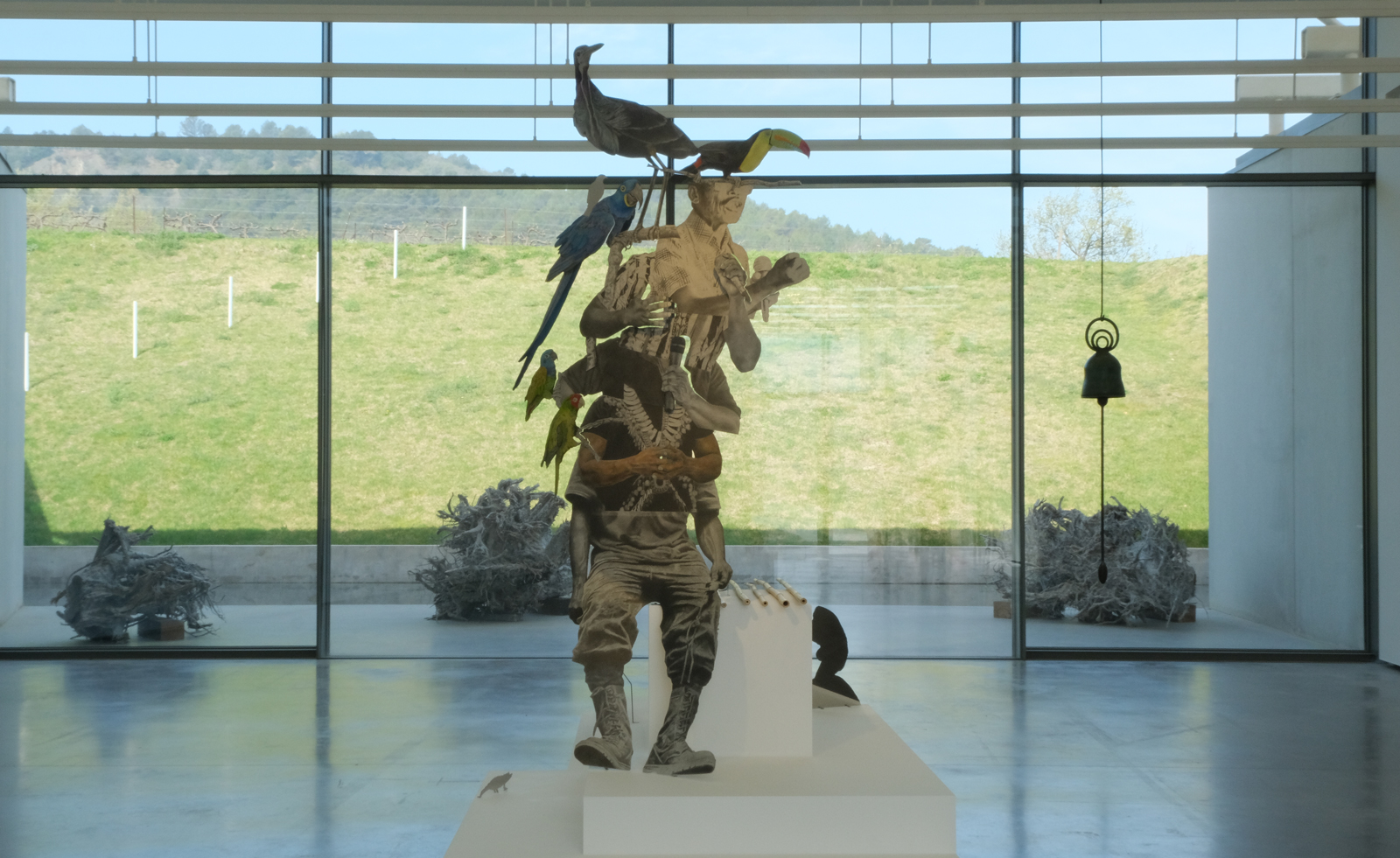 Contemporary artist collective Poush takes over Château La Coste
Contemporary artist collective Poush takes over Château La CosteMembers of Poush have created 160 works, set in and around the grounds of Château La Coste – the art, architecture and wine estate in Provence
By Amy Serafin
-
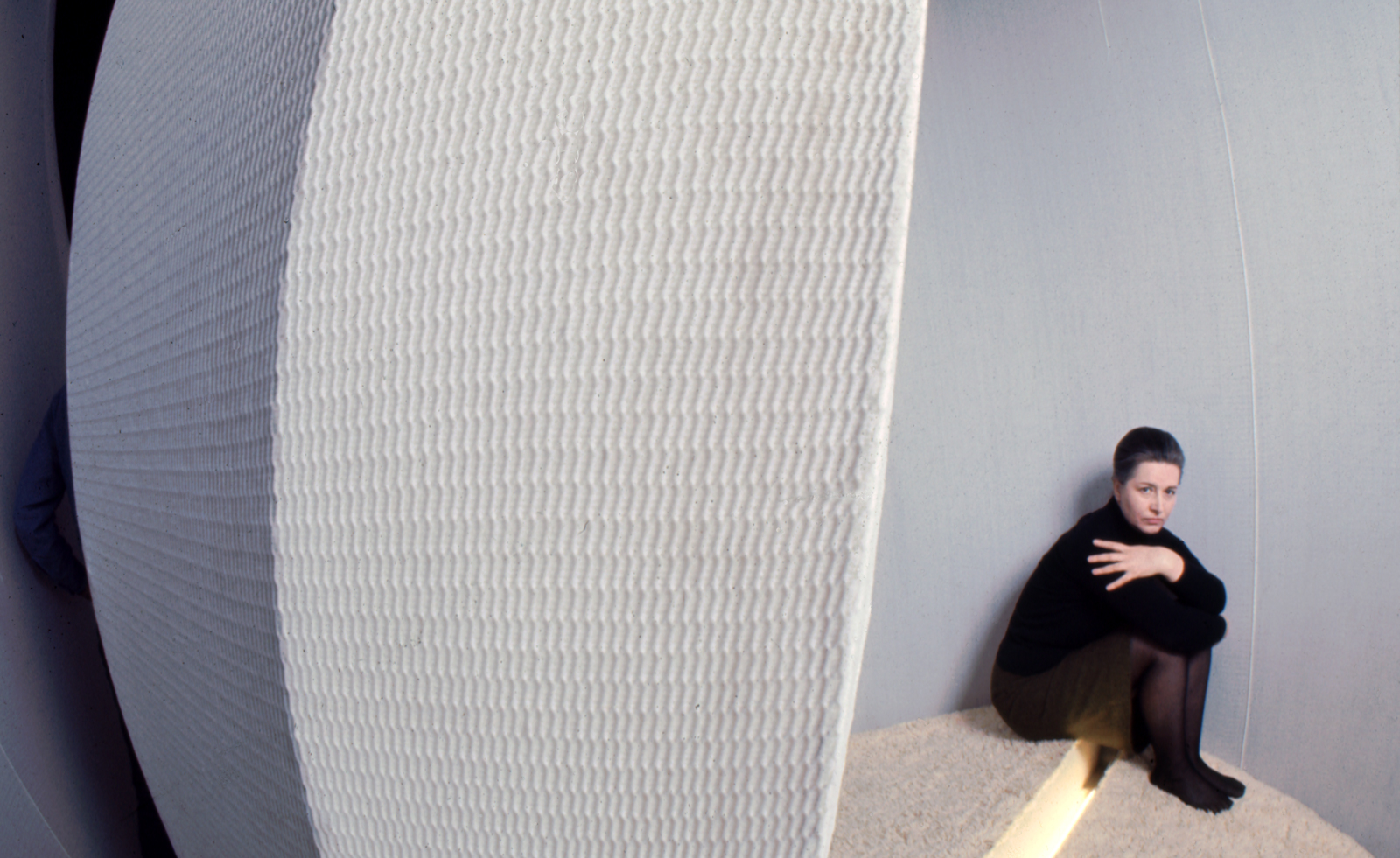 Architecture, sculpture and materials: female Lithuanian artists are celebrated in Nîmes
Architecture, sculpture and materials: female Lithuanian artists are celebrated in NîmesThe Carré d'Art in Nîmes, France, spotlights the work of Aleksandra Kasuba and Marija Olšauskaitė, as part of a nationwide celebration of Lithuanian culture
By Will Jennings
-
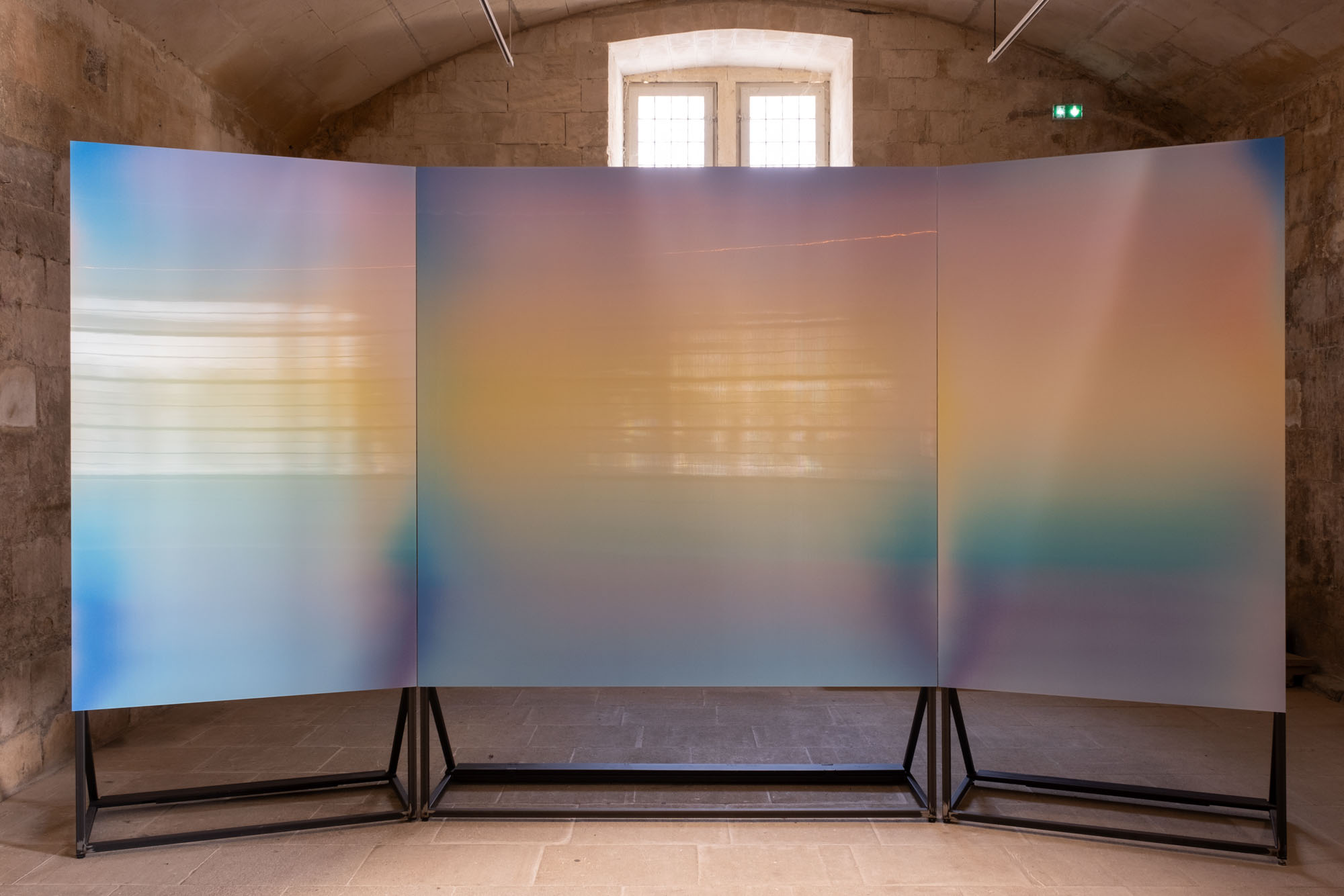 ‘Who has not dreamed of seeing what the eye cannot grasp?’: Rencontres d’Arles comes to the south of France
‘Who has not dreamed of seeing what the eye cannot grasp?’: Rencontres d’Arles comes to the south of FranceLes Rencontres d’Arles 2024 presents over 40 exhibitions and nearly 200 artists, and includes the latest iteration of the BMW Art Makers programme
By Sophie Gladstone
-
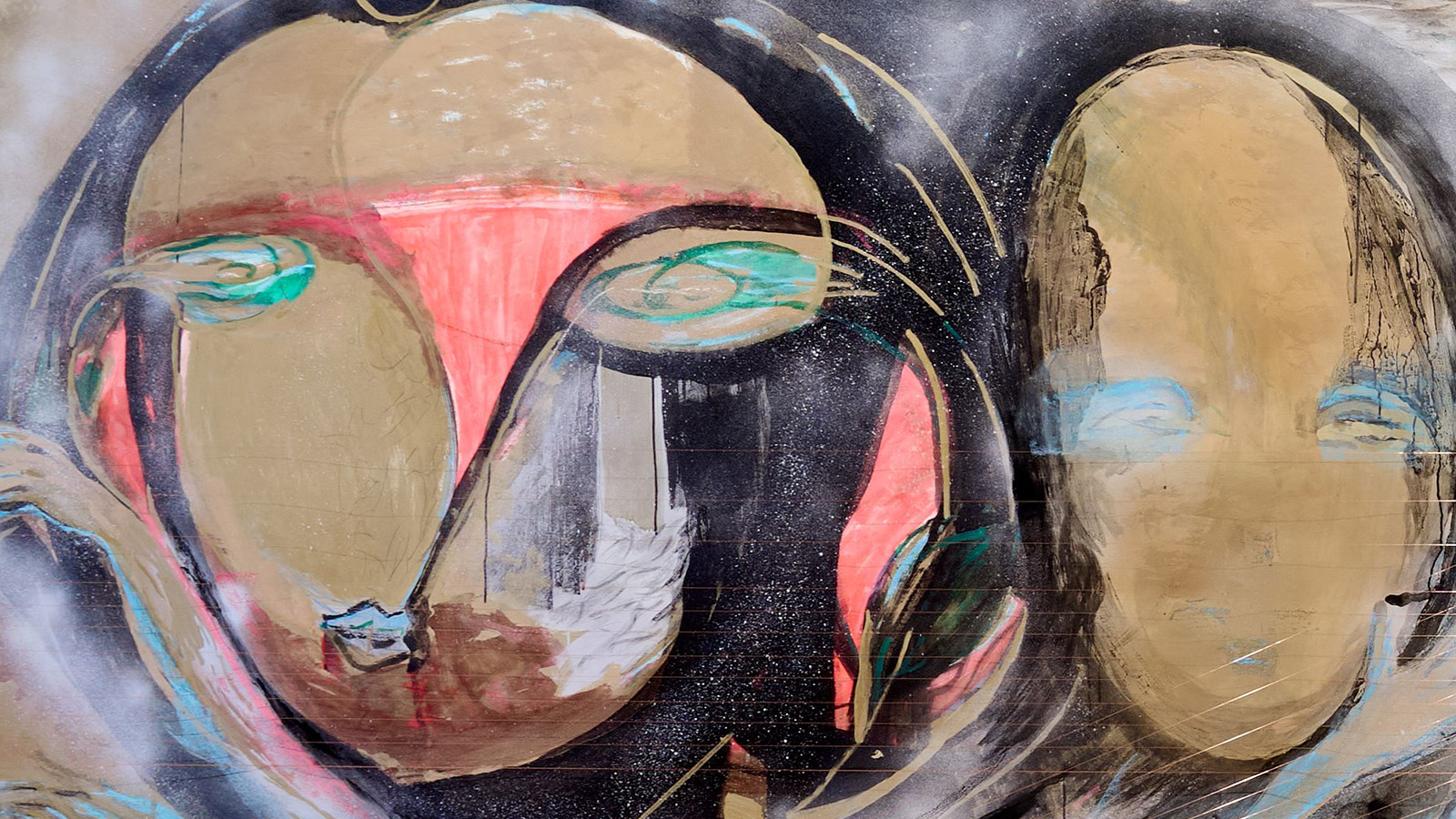 Marisa Merz’s unseen works at LaM, Lille, have a uniquely feminine spirit
Marisa Merz’s unseen works at LaM, Lille, have a uniquely feminine spiritMarisa Merz’s retrospective at LaM, Lille, is a rare showcase of her work, pursuing life’s most fragile, transient details
By Finn Blythe
-
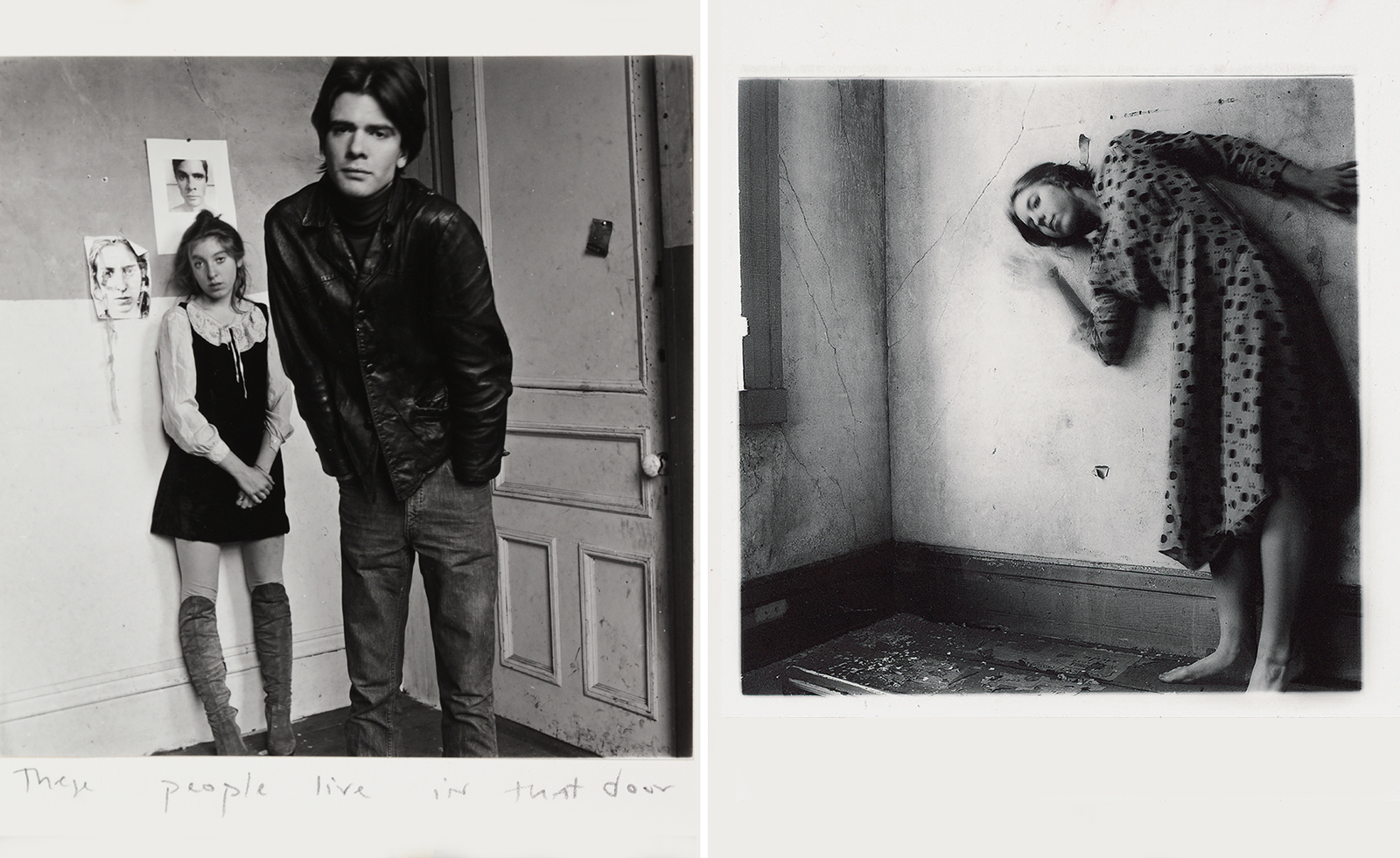 Step into Francesca Woodman and Julia Margaret Cameron's dreamy photographs in London
Step into Francesca Woodman and Julia Margaret Cameron's dreamy photographs in London'Portraits to Dream In' is currently on show at London's National Portrait Gallery
By Katie Tobin
-
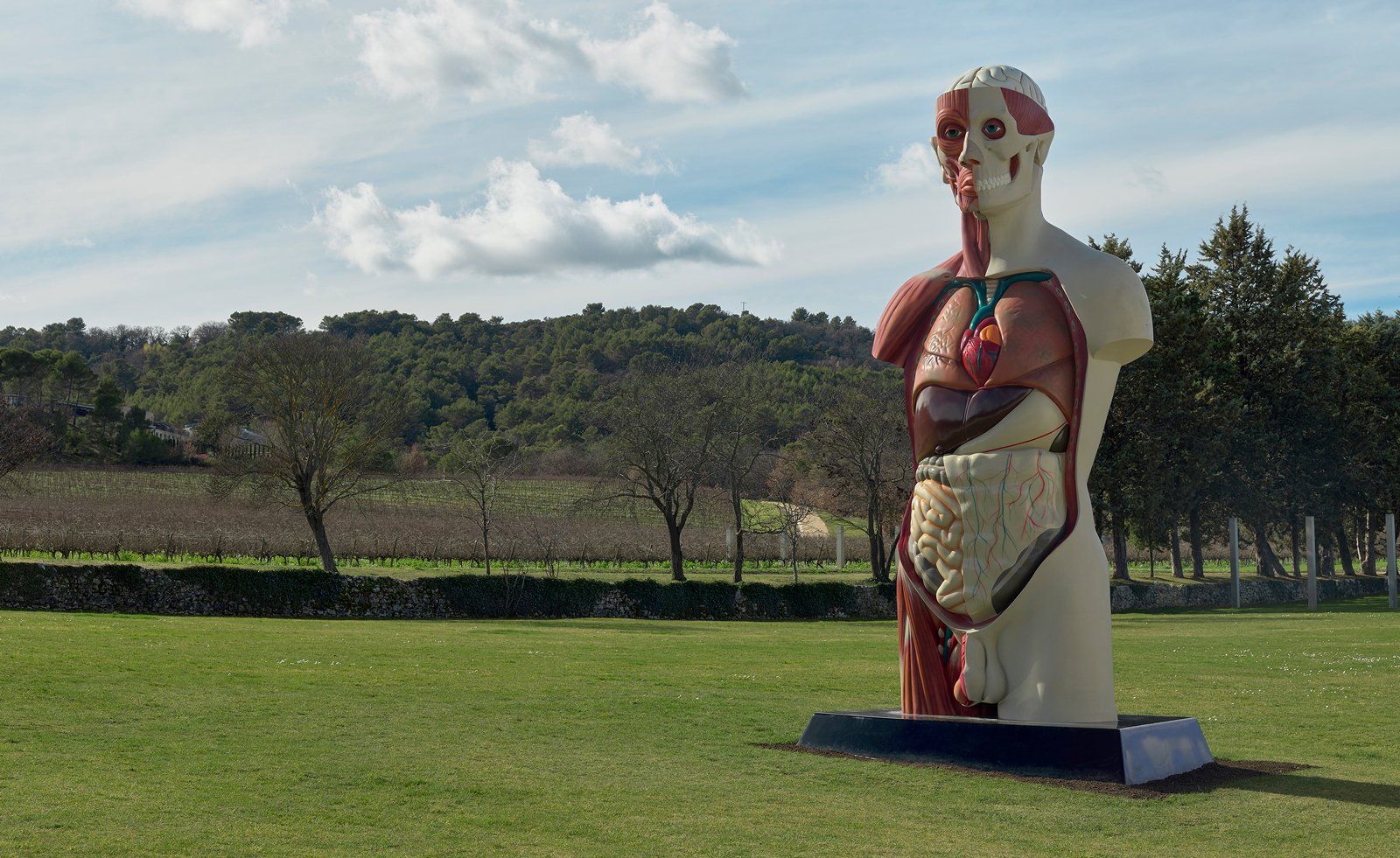 Damien Hirst takes over Château La Coste
Damien Hirst takes over Château La CosteDamien Hirst’s ‘The Light That Shines’ at Château La Coste includes new and existing work, and takes over the entire 500-acre estate in Provence
By Hannah Silver
-
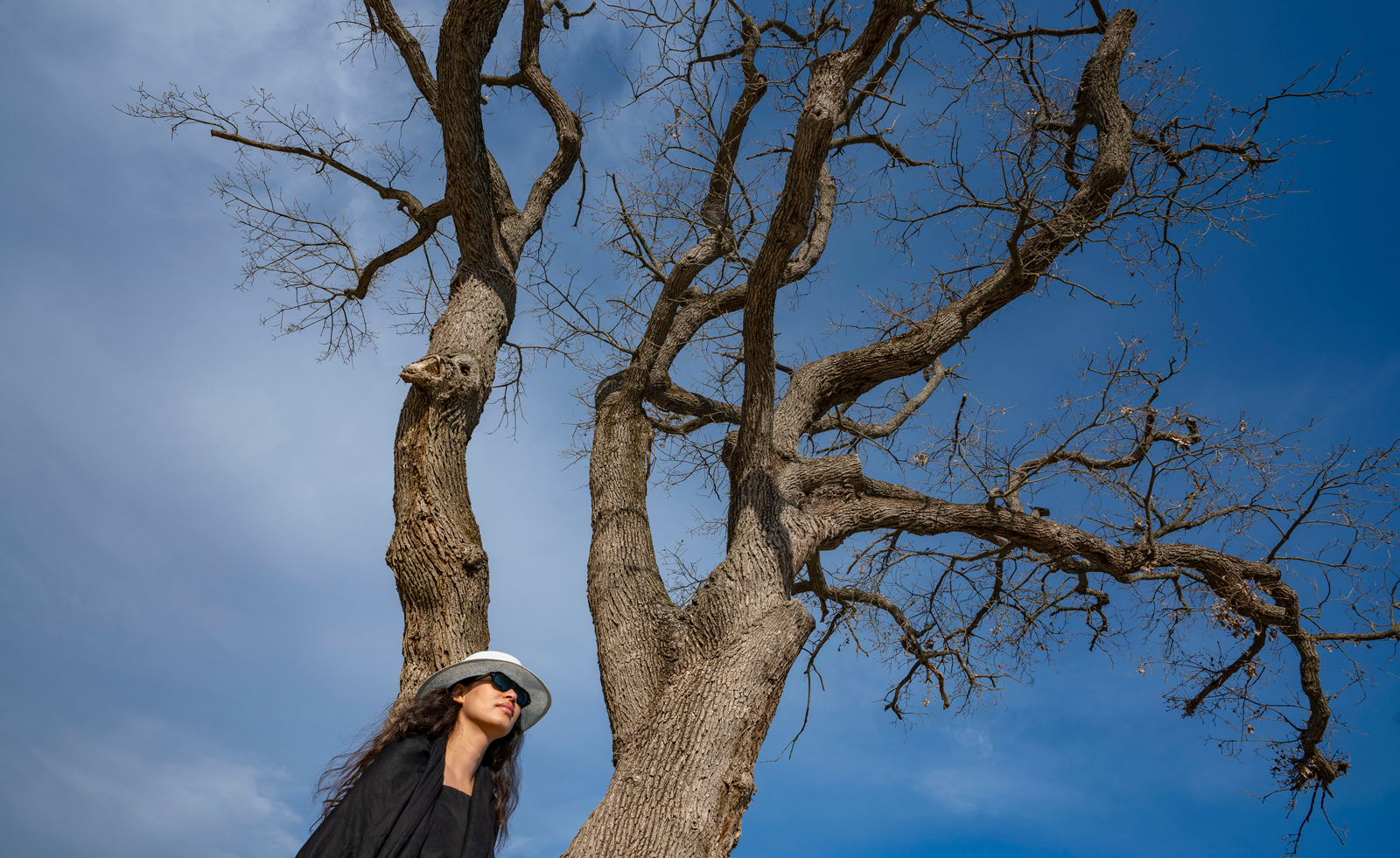 Tia-Thuy Nguyen encases Chateau La Coste oak tree in tonne of stainless steel strips
Tia-Thuy Nguyen encases Chateau La Coste oak tree in tonne of stainless steel stripsTia-Thuy Nguyen’s ‘Flower of Life’ lives in the grounds of sculpture park and organic winery Château La Coste in France
By Harriet Quick
-
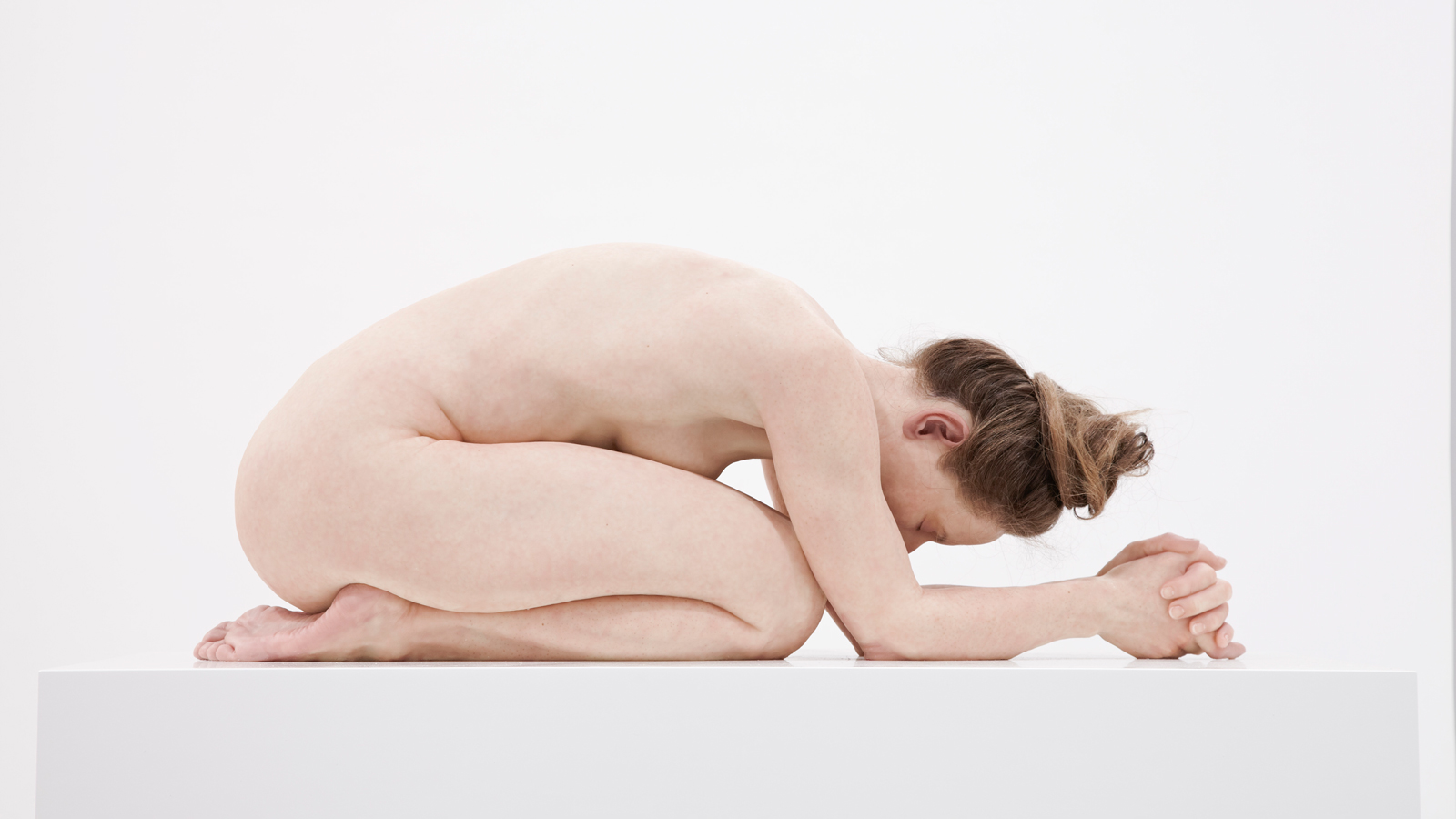 Paris art exhibitions: a guide to exhibitions this weekend
Paris art exhibitions: a guide to exhibitions this weekendAs Emily in Paris fever puts the city of love at the centre of the cultural map, stay-up-to-date with our guide to the best Paris art exhibitions
By Harriet Lloyd-Smith